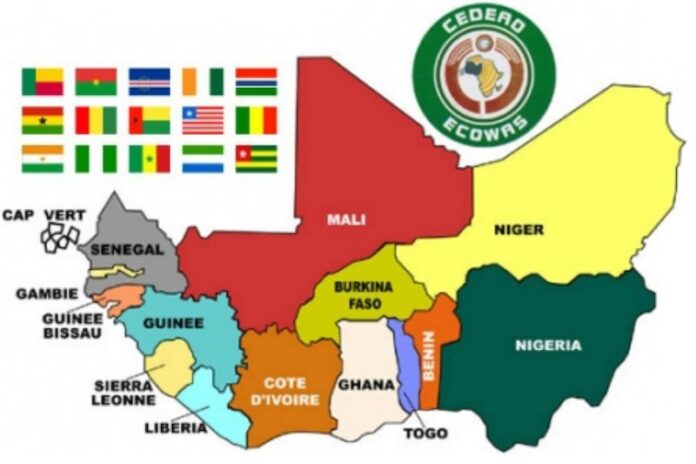ECOWAS Facing Financial Challenges, Must not be Overburdened, Says Justice Asante
President of the Economic Community of West African States (ECOWAS) Court of Justice, Justice Edward Amoako Asante, has lamented that the regional bloc is currently facing financial challenges and must not be overburdened by its institutions.
Some of the ECOWAS institutions include ECOWAS Commission, ECOWAS Bank for Investment and Development (EBID), Community Court of Justice, Community Parliament, West African Health Organisation (WAHO), and Inter-Governmental Action Group against Money Laundering and Terrorism Financing in West Africa (GIABA).
Speaking at the opening of the 16th Administrative and Budget Retreat of ECOWAS Court in Nasarawa State, near Abuja, Asante said with the financial challenges facing the community, it was imperative that its resources should not be overburdened.
He stated, “We must all know that the community is now financially weak and, therefore, we do not have to overburden the community itself.”
Asante, however, said despite the constraints, the court remained committed to its mandate.
“We still have to do our programmes to let people know that the court is also performing its function,” he said.
Asante acknowledged the essential role that budgetary allocations played in the functioning of the ECOWAS Court, stressing, “We know budgetary issues are very important for every institution since that is the mainstay.”
He highlighted the comprehensive effort made to collate inputs from all departments and units, ensuring that the proposed budget reflects the diverse needs and priorities of the entire court.
The ECOWAS court president underscored the financial challenges facing the community, and cautioned against overburdening its resources.
Addressing the high administrative and operational costs that constituted a significant portion of the court’s budget, the president pointed out that approximately 80 per cent of the budget was dedicated to these expenses, leaving limited funds for planned activities.
Asante called for collective wisdom and strategic planning, and urged all participants to contribute thoughtfully to the budget discussions.
He stated, “We have to be able to judge all and put our heads together to come up with the best budget, which, when presented to the Administration and Finance Committee (AFC) and to the Council of Ministers, they will look at it as a very good budget and approve it for us.”
He expressed the court’s intention to advocate the preservation of its budget, highlighting its reliance on community funding.
Asante, while declaring the Administrative and Budget retreat open, invited participants to engage in productive dialogue and decision-making.
The retreat was expected to foster thoughtful discussions, open dialogues, and constructive debates, leveraging the collective wisdom, diverse perspectives, and shared experiences of the attendees.
On his part, Director of Administration and Finance, Dr. William Towah, expressed confidence that the retreat will pave the way for innovative solutions, inspire new ideas, and renew the sense of purpose within the Community Court of Justice.
Presenting the objectives and expectations of the retreat, Towah emphasised the retreat’s significance as a platform to assess the court’s progress and strategise for the future.
He commended the collective dedication and diligence of the court’s members, which had propelled the institution to new heights, upholding the rule of law.
“Our collective efforts have earned the respect and trust of our stakeholders, creating a positive impact on the lives of those we serve,” he stated.
Acknowledging the court’s challenges, Towah highlighted the importance of continuous improvement and called for critical assessment of the court’s shortcoming and identification of areas for enhancement.
He said, “By embracing these challenges, we can further strengthen our foundation and ensure that the court remains a beacon of justice and fairness.”
The annual Administrative and Budget retreat was attended by the Honourable Vice President, judges, directors, and staff of the court.
























